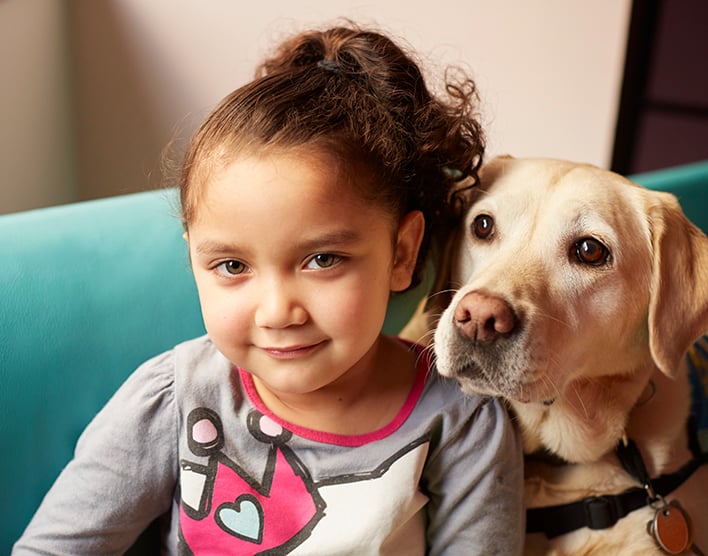Tender wagging care
Our therapy dogs spread joy and smiles at the bedside and throughout the hospital.
Visit Child Life services

Most people are born with two kidneys, bean-shaped organs located at either side of the spine, behind the abdominal organs and below the rib cage. The kidneys play a major role in keeping you healthy by filtering waste products from normal body functions out of the blood, passing them from the body as urine, and returning water and chemicals back to the body as necessary; regulating blood pressure by releasing several hormones; and stimulating red blood cell production by releasing the hormone erythropoietin.
UCSF Benioff Children's Hospital provides consultation and treatment for children with various diseases of the urinary tract and kidney, including those resulting in kidney failure.
Some of the conditions we treat include:
Children's kidney diseases that can progress to moderate or severe kidney failure include:
Congenital Kidney Disease:
Genetic, or Inherited, Disease:
Acquired Glomerulonephritis, or inflammation of the glomeruli, the kidneys' filtering units:
UCSF Benioff Children's Hospitals medical specialists have reviewed this information. It is for educational purposes only and is not intended to replace the advice of your child's doctor or other health care provider. We encourage you to discuss any questions or concerns you may have with your child's provider.
 10
10
 4
4
Ferric Citrate and Chronic Kidney Disease in Children
Compared to placebo, active treatment with FC will lower iFGF23 levels
Recruiting
More about this studyAPOL1 Long-term Kidney Transplantation Outcomes Network (APOLLO)
Time from receipt of kidney transplant to death-censored renal allograft failure. Measured in days.
Recruiting
More about this study
Ranked among the nation's best in 11 specialties
Tender wagging care
